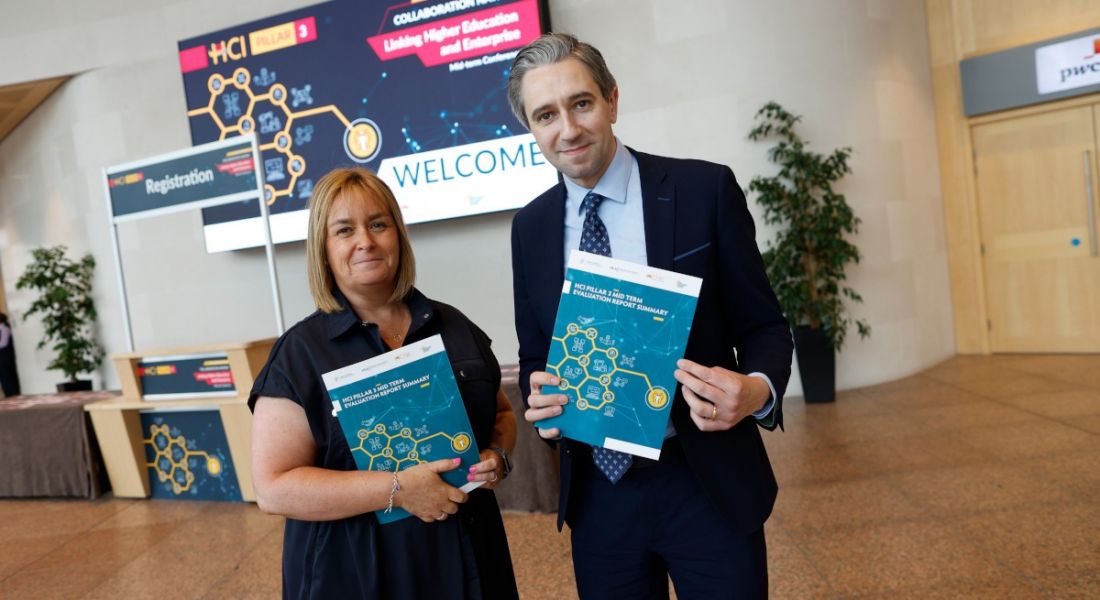Dr Vivienne Patterson gives us an insight into what the Higher Education Authority is doing to combat some of Ireland’s most pressing skills shortages.
When SiliconRepublic.com asks Dr Vivienne Patterson, head of skills, engagement and statistics at the Higher Education Authority (HEA) for some words of wisdom on the country’s most severe skills shortages, she instantly mentions cybersecurity. This is not too surprising.
“We know from various sources that Ireland has a critical shortage of cybersecurity professionals, placing our digital economy at risk because we cannot secure ourselves against security threats,” she says.
From a skills point of view, Patterson believes that “investing in cybersecurity is our best line of defence” – particularly in an increasingly complex threat landscape. “The rapid growth of connected industry and critical infrastructure through the Internet of Things and Industry 4.0, and developments in AI, further expose businesses and nations to not only existing cybersecurity threats but also to cyberphysical espionage and sabotage, further fuelling demand for cybersecurity professionals.”
And for Ireland in particular, Patterson points out, “There is a critical need for a national supply of talent to ensure that our data centres – which house significant amounts of Europe’s data, businesses and critical infrastructure – are protected and to establish the national trust needed for future inward investment.”
Concrete answers and capital schemes
Patterson is one of the people in charge of providing concrete answers to talent shortages, or at the very least, she knows numerically where the problems lie. Under schemes like the Human Capital Initiative (HCI), a slightly dystopian moniker for what is just a multi-year, multi-pillar project to invest State money into building higher education programmes led by the HEA.
One of these programmes is called Cyber Skills, and it is run by Munster Technological University. Its goal? Creating a “steady supply of skilled cybersecurity professionals” that will allow Ireland to maintain its international reputation as a safe place for business, says Patterson. Cyber Skills launched in 2021 with a budget of €8m. It focuses on three main areas, as designated by industry partners Dell and Mastercard – and they are secure network operations, secure software development and secure software architecture. But while the acute nature of the cybersecurity skills shortage has necessitated what Patterson terms “landmark HCI projects” such as CyberSkills, other areas need monitoring, too.
Alternative routes to education
Even sectors such as the manufacturing sector are facing skills gaps in key areas including automation, engineering and polymers. These gaps need to be addressed if Ireland is to keep up to Industry 5.0. One way of doing that, according to Patterson, is to open up alternative routes into education so people don’t have to fork out for an expensive degree to work in the area. “Education needs to be more accessible, flexible and open to diverse learners,” she says.
One of these alternative routes has been developed by Rethinking Engineering Education in Ireland (REEDI), a consortium that runs a four-year undergraduate engineering degree where students get to spend the last two years of their learning on paid placement with industry players such as Stryker and Analog Devices. The other project, known as the Amase project, involves using VR tech to allow learners to use pieces of equipment that they will be working with when they enter the workforce in a virtual environment. “Health and safety concerns would not have allowed this to happen in practice but they can gain exposure and experience in the virtual environment,” says Patterson.
Lifelong learning and transversal skills
The exposure and experience points are both quite important when it comes to the HCI and HEA’s approach to designing programmes. The group has to ensure that the skills the programmes are trying to address are not becoming obsolete. Regular consultations with industry are required to keep things fresh. There is also a focus on soft – or transversal – skills and lifelong learning. Education may be losing the traditional third-level degree aspect, but in its place is the idea that learning never really stops. Most regular readers will have heard of the European Year of Skills by now. According to Patterson, the year-long campaign “has shone a light” on the importance of lifelong learning. “Ireland as a country is lagging behind the rest of Europe in its participation in lifelong learning. We are currently 15th out of 27 countries. Providing cost-effective flexible programmes through the HCI projects will help improve our ranking.”
The microcreds scheme is one example. The series of mini courses let people “dip their toes in the pond of higher education at a time that suits them”, says Patterson, adding that “In many cases, people get the bug and continue their journey in the education system.” Of course, the flexible learning models and the fact that a big focus of the microcreds is their co-design with industry is sure to be a draw to jobseekers. Patterson believes that to keep up the progress that the HEA has been making with the HCI, it will be necessary to continue to use the National Training Fund to invest in future talent.
However, critics of the Government and its plans to boost higher education are already pointing out that it fell short of its own report’s recommendations to increase the annual stipend for postgraduate workers to €25,000 in this year’s Budget. Today (12 October), Minister for Further and Higher Education, Simon Harris, TD said he would be increasing the stipend by €3,000 from January 2024. Could it be that the Government has some catching up of its own to do?
10 things you need to know direct to your inbox every weekday. Sign up for the Daily Brief, Silicon Republic’s digest of essential sci-tech news.




